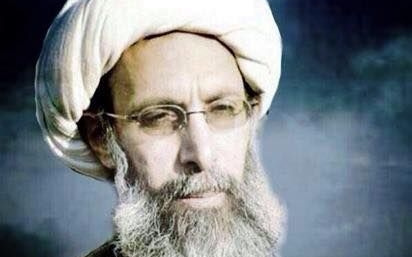Sheikh Nimr Baqir al-Nimr was an ardent advocate against all forms of oppression. He was a Shia cleric who pushed for equality for Saudi Arabia’s Shia Muslim population, while also promoting increased political freedom for the kingdom’s Sunni Muslims. His ideals have resonated around the country and across sectarian lines.
Much of the appeal of his message can be attributed to the centralized nature of the Kingdom of Saudi Arabia’s political structure. Political power in Saudi Arabia is concentrated in the hands of the king and his inner circle. While the religious establishment exercises significant influence, power and authority ultimately reside with the al-Saud family. There is no national political body with popular representation. The majlis al-shura—consultative council—has some of the functions of a legislative body because it debates legislation. Despite this, its role is confined to advising the king and it has no veto or lawmaking power. In this political environment, all Saudis are disenfranchised. This disenfranchisement is not equal. Not only does the kingdom’s Shia population face significant political hurdles in voting and campaigning than the Sunni population, it also faces systemic social discrimination. However, regardless of sect, average Saudi citizens do not have a voice in the decisions that affect their daily lives.
Sheikh Nimr called for political and social reforms to the kingdom, including an end to government harassment, intimidation, and oppression. This message resonated among many of his Shia followers, who face systemic discrimination and who the state regularly treats as second-class citizens. He preached that, “from the moment you are born, you are surrounded by fear, intimidation, persecution, and abuse. I am 55 years old […] from the day I was born to this day, I’ve never felt safe or secure in this country.” He also spoke about popular protests in his hometown of Awamiyah in the Eastern Province stating, “a few months ago, the flame of honor was sparked in the spirits of the youth. The torch of freedom was lit. The people took to the streets, demanding reform, honor, and freedom.”
In 2009, after the Medina riots and the government’s subsequent dismissal of Shia complaints of discrimination and violence, Sheikh Nimr delivered a controversial speech seemingly threatening that the Eastern Province Shia would secede from the kingdom if their dignity was not returned. He stated, “our dignity is more precious than the unity of this land.” Ali al-Ahmed, of the Institute for Gulf Affairs and a friend of Sheikh Nimr, interpreted the speech differently, suggesting that rather than calling for secession, Sheikh Nimr meant that, “the dignity of man, the dignity of a human being, is much more important than political unions.”
Sheikh Nimr focused his message towards the kingdom’s Shia, but their oppression is a facet of the government’s broader restriction of all Saudi residents’ rights. The kingdom limits freedom of speech and freedom of association, and the government does not recognize the freedom to publicly practice any non-Muslim religion. Within the confines of the male guardianship system, women are treated as legal minors, needing a male guardian’s permission to do many basic tasks, such as travel and access healthcare. Cybercrime and publication laws restrict the materials citizens can publish.
Sheikh Nimr’s ideals apply to all Saudi citizens. The issues he focused on–oppression, the loss of dignity, and lack of basic human rights and political freedom—resonate around Saudi Arabia and across religious lines. The cross-sectarian appeal of these ideals is demonstrated by the work of some Sunni human rights advocates who also argue for more human rights, political freedoms, and an end to oppression. Among these activists are the members of the Saudi Civil and Political Rights Association, who promote human rights and political reform, and Raif Badawi, who advocates for free speech and liberalism.
Saudi Arabia suppresses fundamental human rights and political freedoms and curtails freedom of speech. Because of this, the ideals of dignity, human rights, and political freedoms that Sheikh Nimr promoted resonate across sectarian lines in the kingdom. Saudi Arabia oppresses all of its residents, imprisoning any who criticize the government. As a member of the United Nations Human Rights Council, Saudi Arabia should demonstrate its commitment to these fundamental rights by signing and ratifying the International Covenant for Civil and Political Rights (ICCPR) and bringing its domestic legislation in line with the ICCPR.
Tyler Pry is the Sheikh Nimr al-Nimr Advocacy Fellow at ADHRB





